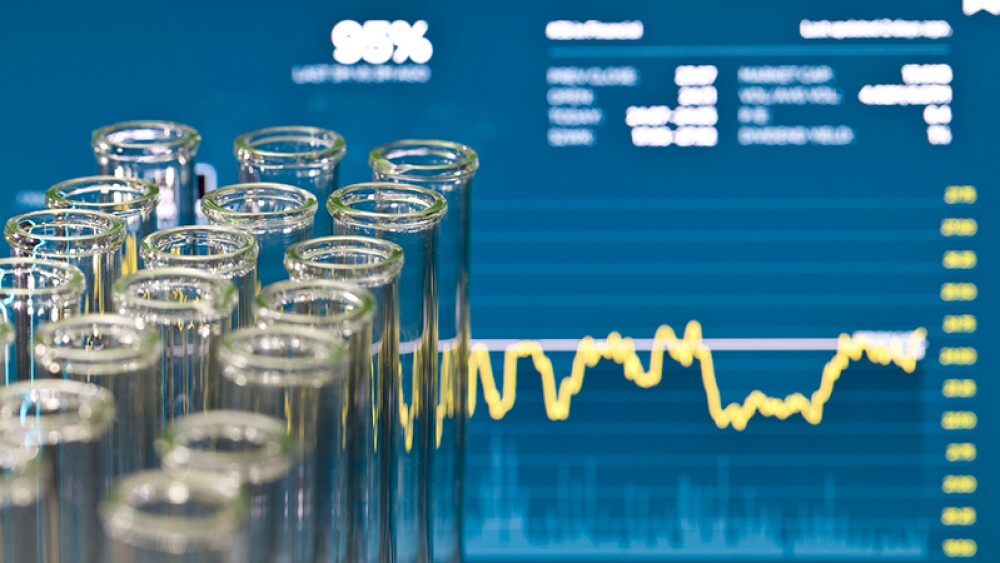November 2, 2016
By Mark Terry, BioSpace.com Breaking News Staff
Biotech is a volatile business—promising companies can go under in a ball of flames, or blow up to be worth billions in a short period of time. Keith Speights, writing for The Motley Fool, talks about three biotech companies that could double their share values in the next year.
Celldex Therapeutics has had a mixed year. In March, its Phase III trial of Rintega in patients with newly diagnosed EGFRvIII-positive glioblastoma failed. But the company’s glembatumumab vedotin is showing a lot of promise in four mid-stage trials, an early-stage trial, and in particular, a trial in triple-negative breast cancer.
The company also has varlilumab in a mid-stage trial in combination with Bristol-Myers Squibb ’s Opdivo in multiple cancer types. And it has three other pipeline products for cancer.
Also notable, in June, five billionaire-founded funds invested heavily in the company. The biggest buy was from Millennium Management, managed by Israel Englander. Millennium acquired 2.55 million shares in the first quarter.
Speights writes, “Despite the loss of Rintega, Wall Street analysts still think Celldex could come back. The average analyst one-year price target for the stock represents an increase of 120 percent over the current share price.”
Celldex is currently trading for $3.15.
2. Geron Corp
On September 12, Geron Corp provided updates on its Phase II trial with Johnson & Johnson on imetelstat. It is being evaluated intermediate-2 or high-risk myelofibrosis (MF). The dosage was determined to be good and safe, but it needed more patients for efficacy data.
One problem with Geron is that imetelstat is pretty much all it has. The company’s stock has dropped more than 60 percent in the year to date, mostly related to the imetelstat announcements.
Speights writes, “Next year could be make-or-break for Geron. J&J plans to review data of the myelofibrosis study in the second quarter of 2017 to determine next steps. A decision about whether to move forward to the second part of the MDS study of imetelstat also will be made in the second quarter.”
If the results are good, company stock will take off.
Geron is currently trading for $1.86.
Inovio Pharmaceuticals stock rose about 40 percent in the first half of 2016, but has dropped since then. The company has a broad pipeline. VGX-3100 will begin a Phase III trial for cervical dysplasia by the end of the year. And it has 14 early-stage trials currently ongoing with several drugs. One of its compounds, INO-3112, is being evaluated in a combination with VGX-3100 in Phase I/II trials with AstraZeneca . One trial is on cervical cancer and the other is on head and neck cancer.
It’s had both good news and bad news this year. Company stock jumped based on news of the company’s Zika vaccine program. But it had problems when the U.S. Food and Drug Administration (FDA) placed a clinical hold on a planned Phase III study of VGX-3100, a cervical dysplasia vaccine. The hold was related to a request for more data about the vaccine’s delivery system.
Speights writes, “The primary catalysts that could help Inovio’s stock rebound include a green light from the FDA to move forward with testing VGX-3100 and positive news from the early-stage study of the company’s Zika vaccine. I won’t be surprised if both catalysts combine to help the biotech’s stock double by this time next year.”
Inovio is currently trading for $6.54.





